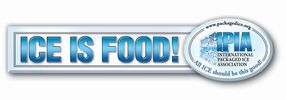|
Copyright International Packaged Ice Association. All Rights Reserved.
1519 Dale Mabry Highway, Suite 202, Lutz, FL 33548 Contact Us The IPIA name/logo collective registration mark found on this site may not be used by any IPIA non-member in any advertising or publicity, or otherwise to indicate IPIA’s affiliation with any product or service. Although the IPIA site includes links providing direct access to other internet sites, IPIA takes no responsibility for the content or information contained on those other sites, and does not exert any control over those sites. IPIA is providing information under this site and makes no representations about the suitability of this information for any purpose. © 2024
|
IPIA members recognize the importance of proper disposal of packaging.
|
